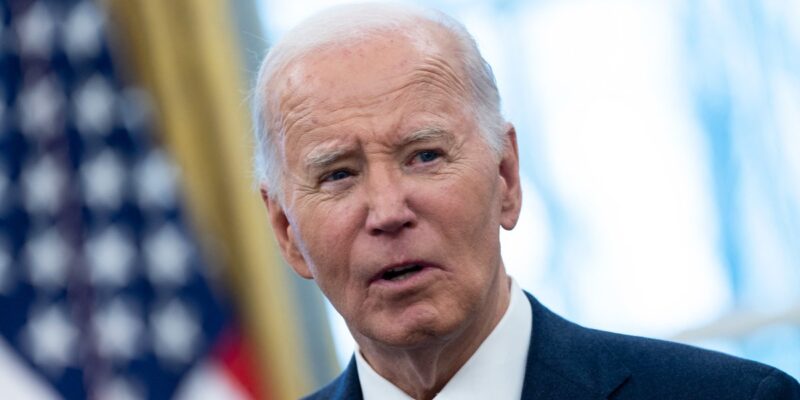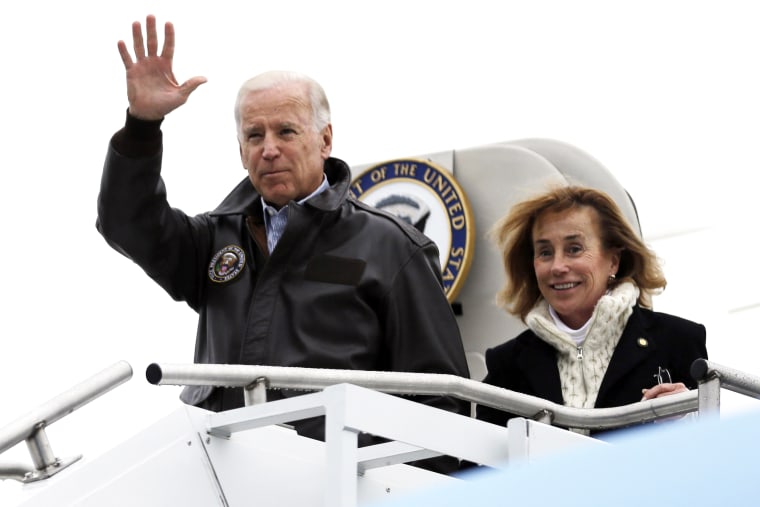
Just minutes before he left office, Joe Biden announced a set of sweeping pre-emptive pardons for members of his family, including his two brothers and his sister, after some on the right suggested they should face prosecution.
The announcement — a move Biden once said would not be indicative of his administration — came ahead of the inauguration ceremony for Donald Trump, who was sworn in as the 47th president Monday.
“My family has been subjected to unrelenting attacks and threats, motivated solely by a desire to hurt me — the worst kind of partisan politics,” Biden said in a statement. “Unfortunately, I have no reason to believe these attacks will end.”
In an interview with CNN in 2020, Biden criticized the notion of an outgoing president’s pre-emptively pardoning family members. At the time, it was suggested that it was such a move Trump might take.
“It concerns me, in terms of what kind of precedent it sets and how the rest of the world looks at us as a nation of laws and justice,” Biden said then. “Now, in terms of the pardons, you’re not going to see, in our administration, that kind of approach.”
The pardons quickly drew claims of hypocrisy from Republicans. Alex Pfeiffer, a Trump team spokesman, noted on X that Senate Democratic leader Chuck Schumer of New York warned Trump against pardoning his children in 2020 before he left office and likened pre-emptive pardons to an abuse of power.
Rep. James Comer, R-Ky., the chairman of the Oversight Committee, lambasted Biden for the move. Comer had led an investigation into the Biden family and international business endeavors.
“President Biden’s preemptive pardons for the Biden Crime Family serve as a confession of their corruption as they sold out the American people to enrich themselves,” Comer said in a statement. “Our investigation revealed that at least ten members of the Biden Crime Family and their associates raked in over $30 million by selling Joe Biden’s influence to corrupt foreign entities and individuals in China, Russia, Ukraine, Romania, and Kazakhstan.”
Trump told a reporter between inaugural events at the Capitol that it was “unfortunate” that Biden issued the pardons.
Biden had already pardoned his son Hunter of federal gun and tax charges after he and his White House repeatedly said he would not take such an action.
That move did not sit well with many Democrats. Sen. Adam Schiff of California recently told USA Today that Biden’s pardon of Hunter was a “very ill-considered decision.” On Monday, Biden also pardoned Schiff, whom Trump and his allies have targeted after he served on the House committee that investigated the Jan. 6, 2021, attack at the U.S. Capitol.
Follow live coverage
Biden continued in his statement: “I believe in the rule of law, and I am optimistic that the strength of our legal institutions will ultimately prevail over politics. But baseless and politically motivated investigations wreak havoc on the lives, safety, and financial security of targeted individuals and their families. Even when individuals have done nothing wrong and will ultimately be exonerated, the mere fact of being investigated or prosecuted can irreparably damage their reputations and finances.”
Biden’s pardons for five family members were among a slew of pre-emptive pardons he issued as he left office Monday, including pardons for Dr. Anthony Fauci, former Joint Chiefs of Staff Chairman Mark Milley, other members and staff members of the House Jan. 6 committee and Capitol and Washington Metropolitan police officers who testified before it.

Then-Vice President Joe Biden and his sister, Valerie Biden Owens, walk off Air Force Two in Manchester, N.H., in 2012.Matt Rourke / AP file
“That is why I am exercising my power under the Constitution to pardon James B. Biden, Sara Jones Biden, Valerie Biden Owens, John T. Owens, and Francis W. Biden,” Biden said in a statement. “The issuance of these pardons should not be mistaken as an acknowledgment that they engaged in any wrongdoing, nor should acceptance be misconstrued as an admission of guilt for any offense.”















